March 07, 2011 by Nate
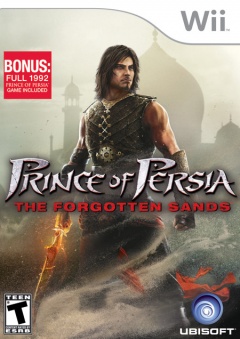 Hollywood and video games have never had a healthy relationship. Ever since the Super Mario Bros movie ruined millions of childhoods, video game franchises of all kinds have received blasphemous silver screen adaptations. The latest mainstream abuse of a video game license comes from Prince of Persia: The Sands of Time. I'm not one to praise the narrative of most games, but I really enjoyed the bittersweet fable of the Prince and Farah that the 2002 hit presented. I've heard less favorable things about the movie, and I don't think I want to see how it ended up.
Hollywood and video games have never had a healthy relationship. Ever since the Super Mario Bros movie ruined millions of childhoods, video game franchises of all kinds have received blasphemous silver screen adaptations. The latest mainstream abuse of a video game license comes from Prince of Persia: The Sands of Time. I'm not one to praise the narrative of most games, but I really enjoyed the bittersweet fable of the Prince and Farah that the 2002 hit presented. I've heard less favorable things about the movie, and I don't think I want to see how it ended up.
The existence of Prince of Persia: The Forgotten Sands is the result of one of the strangest cross-media cycles I've ever seen. The Forgotten Sands, a sequel to the Sands of Time video game, was released alongside the Sands of Time movie, an unrelated adaptation of the Sands of Time video game. Even stranger, Sands of Time already has a pair of sequels (Warrior Within, and The Two Thrones), but Forgotten Sands apparently precedes them. Even strangerer, the Wii version of Forgotten Sands is actually an alternate tale to the version of the game available for PS3, 360, and PC!
I'm still trying to wrap my head around all that. The plotline of the Sands Trilogy was already mind-bending enough with all the time travel going on, but now Hollywood's gone and made everything worse! Oh well. I guess the more pressing topic at hand is just how forgettable Forgotten Sands is on the Wii.
March 04, 2011 by Greg Noe
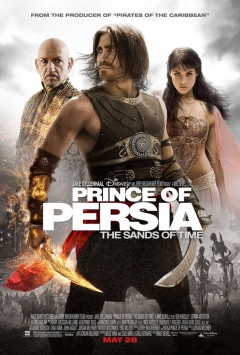 Here we go with another video game adaptation, this time with Disney’s Prince of Persia: The Sands of Time. Released last year, it is based on the Xbox, PlayStation 2, GameCube, Windows game of the same name from way back in 2003. Creator of the series, Jordan Mechner, actually wrote the film, so we at least have a bit of pedigree here.
Here we go with another video game adaptation, this time with Disney’s Prince of Persia: The Sands of Time. Released last year, it is based on the Xbox, PlayStation 2, GameCube, Windows game of the same name from way back in 2003. Creator of the series, Jordan Mechner, actually wrote the film, so we at least have a bit of pedigree here.
I don’t really ever feel the need to watch movies based on video games, so I’m usually seeking them out on purpose to rip on them. The Sands of Time is no exception, and while I fully expected the movie to suck, I was surprised to find that it was actually not terrible, but still not a very good “adaptation” of a series I’m very familiar with.
The movie stars Jake Gyllenhaal in all his shirtless manliness, plus Gemma Arterton as the damsel and Ben Kingsley in yet another video game movie after Bloodrayne. I’m not a big film nerd, but even I recognize that Kingsley is a pretty good actor that takes a ton of bad roles. I question his sanity.
Here’s my thoughts on Prince of Persia: The Sands of Time.
Read moreMarch 02, 2011 by Nate
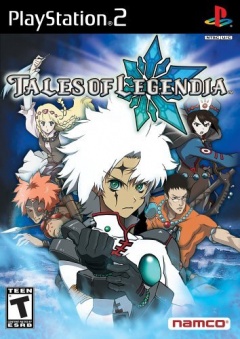 As you might expect from someone whose primary consoles went from Genesis to N64 and Gamecube, Japanese RPGs have never been my forte. Though I've played bits and pieces of many, I'm having a hard time thinking of a traditional JRPG cast in the menu-driven, Final Fantasy mold that I've started and finished all by myself. Chrono Trigger may be the only title that comes to mind.
As you might expect from someone whose primary consoles went from Genesis to N64 and Gamecube, Japanese RPGs have never been my forte. Though I've played bits and pieces of many, I'm having a hard time thinking of a traditional JRPG cast in the menu-driven, Final Fantasy mold that I've started and finished all by myself. Chrono Trigger may be the only title that comes to mind.
Many of the RPGs from the land of the rising sun that I've completed are better described as Action RPGs (The World Ends With You, Mario & Luigi series). And if I had to name a favorite, it would probably be Tales of Symphonia. This Gamecube exclusive from Namco quickly enamored me with its excellent mix of real time combat and menu-based management. I don't think I'd ever had so much fun in a JRPG: the exciting dodges, blocks, and combos in brawls on the front lines were perfectly complemented by magic, item, and strategy commands for party members through the pause menu. It's the finest marriage of Action and RPG I've come across.
I've only played the two Symphonia-branded titles in the storied Tales series, so I decided it was time to pick up another. I remembered hearing about Tales of Legendia for the PS2 back when it hit shelves for the first time, so I figured I'd pick it up now that I'm in the mood for a fat, juicy adventure. Does it live up to its franchise name, or is this Tale not worth the time?
Read moreFebruary 28, 2011 by Greg Noe
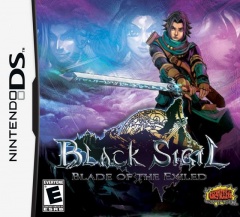 During the Super Nintendo era, Squaresoft was peaking with Secret of Mana, Final Fantasy VI, and Chrono Trigger. The developer defined the Japanese RPG genre with those titles and also completely owned the marketplace for years to come. It’s easily arguable that Square has since lost the JRPG title to other developers such as Atlus (with its recent bit of awesomeness titled Radiant Historia in particular), but they’ll never have their triumphant 16-bit period taken away from them.
During the Super Nintendo era, Squaresoft was peaking with Secret of Mana, Final Fantasy VI, and Chrono Trigger. The developer defined the Japanese RPG genre with those titles and also completely owned the marketplace for years to come. It’s easily arguable that Square has since lost the JRPG title to other developers such as Atlus (with its recent bit of awesomeness titled Radiant Historia in particular), but they’ll never have their triumphant 16-bit period taken away from them.
Black Sigil: Blade of the Exiled is a love letter to that era. With sprites and animations seemingly ripped straight out of Chrono Trigger and Final Fantasy VI, and a story that sounds by-the-formula familiar to fans of the genre, this 2009 Nintendo DS release appears to be just another Japanese RPG title. But surprisingly, Black Sigil was developed in Montreal, so yes, this is one of those rare Canadian Japanese RPGs.
Developed by Studio Archcraft and published by Graffiti Entertainment, Black Sigil is also a bit of an indie title. The credits listed the same eight names over and over while the title was so long in development that it was originally targeted for the Game Boy Advance.
Unfortunately, the team had their goals so loftily set that I believe they lost sight of what made Squaresoft’s games so great: they were fun. Black Sigil is plagued by some major issues that most people will find the game unplayable beyond a few hours. I stuck it out though, and here’s my review.
Read moreFebruary 25, 2011 by Nate
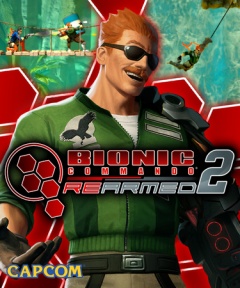 One of my favorite activities in college was brainstorming ideas with my roommates. When bored, we would gather in the living room, get out the whiteboard, and come up with some imaginative business idea or a get-rich-quick scheme or an outline of a blockbuster screenplay. The ambitiousness of our outlandish dreams was matched only by our enthusiasm to start making them a reality.
One of my favorite activities in college was brainstorming ideas with my roommates. When bored, we would gather in the living room, get out the whiteboard, and come up with some imaginative business idea or a get-rich-quick scheme or an outline of a blockbuster screenplay. The ambitiousness of our outlandish dreams was matched only by our enthusiasm to start making them a reality.
Then, after disagreeing for a few hours about what the title should be for our Atlantis-set romantic comedy, we'd give up and play Smash Bros. For the record, though, I still think "Mermaid for Each Other" is just brilliant.
I get the feeling that Fatshark, the small Swedish developer given the reigns to Bionic Commando after its previous steward was dissolved, had similarly lofty goals and equally tragic work ethic for the series' first 2-D sequel. The result is Bionic Commando Rearmed 2, a sequel that I suspect was conceived with a drive to do it big but produced with a reluctance to do it at all.
Read moreFebruary 23, 2011 by Greg Noe
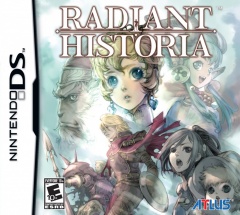 Radiant Historia hasn’t been on my radar for very long, but ever since I learned about it a month ago, I have been very excited to play it. As a Japanese RPG from Atlus, the game already has the pedigree, but the story is what really grabbed me. Radiant Historia is a time traveling game where your goal is to correct the timeline and save your homeland. Yes, this sounds a bit like Chrono Trigger, and you wouldn’t be totally wrong comparing them, but Radiant Historia has its own unique twists to offer up.
Radiant Historia hasn’t been on my radar for very long, but ever since I learned about it a month ago, I have been very excited to play it. As a Japanese RPG from Atlus, the game already has the pedigree, but the story is what really grabbed me. Radiant Historia is a time traveling game where your goal is to correct the timeline and save your homeland. Yes, this sounds a bit like Chrono Trigger, and you wouldn’t be totally wrong comparing them, but Radiant Historia has its own unique twists to offer up.
The game’s timeline is presented like you’re navigating a large skill tree, with decisions made creating forks in the fabric of time. You can revisit these forks and make different decisions, and even learn skills and information in a dead-end timeline to return to the correct route and proceed. This sounded just like the game I’ve been wanting to play for a long time.
Released yesterday, Radiant Historia has been getting some great early reviews. I was able to get my hands on it to present my impressions as quick as possible. Here’s the first hour of Radiant Historia.
Read moreFebruary 21, 2011 by Greg Noe
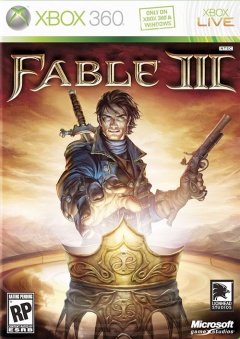 I wasn’t much of a fan of Fable II, so I’ll be honest to say that Fable III has a lot to prove to get me to play past the first hour. The gameplay needed a lot of improvement to start, and the overall presentation of Fable II just felt stuttering and lazy. I do have some hopes that developers can learn from their mistakes, however.
I wasn’t much of a fan of Fable II, so I’ll be honest to say that Fable III has a lot to prove to get me to play past the first hour. The gameplay needed a lot of improvement to start, and the overall presentation of Fable II just felt stuttering and lazy. I do have some hopes that developers can learn from their mistakes, however.
Released in October of last year, Fable III received good scores from major review outlets and had sold over two million copies by the end of the year. A respectable number, though creator Peter Molyneux says it needs to sell about five million for the series to continue. I’m not an industry analyst but this seems like a long way to go now that the holiday season is over.
While I may not like the finished product much, I will probably continue to play the first hour of Molyneux’s games though as he can just be so fiendishly over the top with his ambition and pride. Will Fable III be able to succeed where its predecessor faltered? Or will its first hour lock me in? Let’s find out.
Read moreFebruary 18, 2011 by Greg Noe
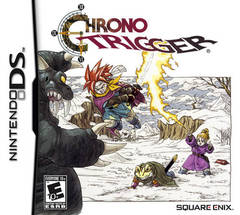 My second son was born today, it was a scheduled delivery, so no, I’m not publishing this manually at six in the morning while my family happily celebrates. He’s the site’s fourth First Hour baby and my second; exciting and scary times lie ahead.
My second son was born today, it was a scheduled delivery, so no, I’m not publishing this manually at six in the morning while my family happily celebrates. He’s the site’s fourth First Hour baby and my second; exciting and scary times lie ahead.
Video games have a long history with children and families, as games began focusing as much on story as any other element, we learned more and more about our protagonists and their situations at home. Text adventure games, computer RPGs, and Japanese RPGs provided writers much more room to flex their muscles and give gamers as much complexity in their stories as they would find in other media.
SquareSoft is an excellent example of writing that evolves over time. The first Final Fantasy was simple: four heroes known only by their character class save the world. Compare that with Final Fantasy VI (III outside Japan) which has feuding brothers teaming up and a knight who just lost his family to a deadly poison and is forced to watch them march to the afterlife. And then again, with Final Fantasy X, where the final boss is the main character’s dad. As the industry grew, writing became braver and more involved and less like a simple action movie.
I started this column over a year ago with a study on Mass Effect, and almost pathetically, this is just the second column. I’ve got about five games in mind I’d like to write a feature on their daddy (and mommy) issues, but they’re a bit more involved than the typical review. The birth of my son though has encouraged me to write this on my favorite game that is chock full of issues: Chrono Trigger.
Enjoy.
Read moreFebruary 16, 2011 by Paul Abbamondi
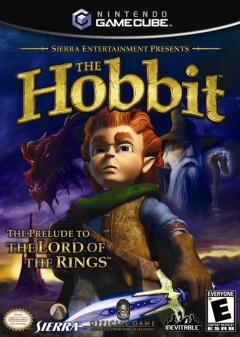 Marrying my wife a few months ago came with a videogamey bonus: a Nintendo Wii. And it wasn’t until several weeks back that I kind of realized that this system can also play GameCube games on it. The Nintendo GameCube is a system I missed out on hard, having only really played two games to my memory: Luigi’s Mansion and Pikmin. GameStops statewide seem to still sell a good selection of GameCube games, and I was able to pick up The Hobbit for less than a cup of coffee and a breakfast sandwich from the local market. As a true J.R.R. Tolkien fanboy, I couldn’t wait to play it. Alas, I had to wait. Long story short, I had to make a return trip to pick up a memory card so I could actually save my progress.
Marrying my wife a few months ago came with a videogamey bonus: a Nintendo Wii. And it wasn’t until several weeks back that I kind of realized that this system can also play GameCube games on it. The Nintendo GameCube is a system I missed out on hard, having only really played two games to my memory: Luigi’s Mansion and Pikmin. GameStops statewide seem to still sell a good selection of GameCube games, and I was able to pick up The Hobbit for less than a cup of coffee and a breakfast sandwich from the local market. As a true J.R.R. Tolkien fanboy, I couldn’t wait to play it. Alas, I had to wait. Long story short, I had to make a return trip to pick up a memory card so I could actually save my progress.
Anyways…The Hobbit. It came out in late 2003, and I’m assuming that its makers were banking on a lot of eager fans awaiting more Lord of the Rings action would be interested in seeing how the journey all started. In fact, blazing bright and gold on the game’s cover is some silly marketing pullquote that says “the prelude to the Lord of the Rings!” Yeah, we know. Hopefully they don’t pull the same silliness with the upcoming theatrical adaptation. The Hobbit, Part 1 of 2: The Prelude to the Lord of the Rings! Bad enough there’s going to be two films.
I’ve played a number of other games based on the Lord of the Rings over the years. Some were decent amounts of fun (The Lord of the Rings: The Two Towers), and others just an unfair mess (The Lord of the Rings: The Third Age). Will The Hobbit soar like the Lord of the Eagles or sink like the One Ring abandoning its former master? Let’s find out with the game’s first sixty minutes.
Read moreFebruary 14, 2011 by Nate
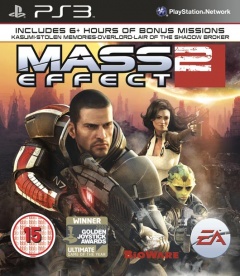 Some games are just so damn popular and beloved that you can't ignore them, no matter how hard you try.
Some games are just so damn popular and beloved that you can't ignore them, no matter how hard you try.
When Mass Effect invaded my world in 2007, I couldn't have cared less. Sure, it was from the same BioWare that produced the excellent Knights of the Old Republic, and seducing blue women sounded like a pretty good time, but it definitely wasn't enough to put a 360 in my life. I'd grown weary of shooters of all kinds since burning out on Halo 2, and with RPG elements mashed in, it only seemed less enticing. I even gave the game a try last year on a friend's machine and didn't make it off the Citadel before losing interest.
The hype hasn't fallen on deaf ears, though. The rave reviews, rave first hour reviews, GOTY awards, and FOX News scare tactic hilarity all kept me up at night, wondering if I was missing out. EA was intent on making me give the series another shot, as they recently completed a PS3 port of Mass Effect 2. Because one of the series' bullet points is importing player-dictated narrative choices from the first game into the second, Dark Horse Comics was called in to help create a short interactive comic that fills in PS3 owners on some of the events that they missed out on from Commander Shepard's first adventure, even allowing the player to make some of the more important decisions to impact their experience with the full sequel.
As it turns out, that comic is DLC, unlockable either by a code included in the game's box or for $15. I rented the game and didn't plan on shelling out fifteen bucks for a fifteen minute comic, so I ended up going into the sequel without much knowledge from the first game. From that starting point aboard the exploding Normandy to the final trip through the Omega 4 relay, I've experienced just about everything included on the PS3 disc of Mass Effect 2 -- as much as you can in one playthrough, anyway -- as Elmer Shepard, a Vanguard of equal parts paragon and renegade, lover and fighter, savior and failure. And sometimes he forgets to feed his fish, and they die.
Greg has already written about the Mass Effect series extensively, having played both games and plenty of extra content on the 360. With that in mind, I'll try (but likely fail) to keep this brief. If you need a primer or refresher for the series, check out one of his excellent writeups. An avid fan of the series, he does a much better job of explaining the core elements of Mass Effect than I could.